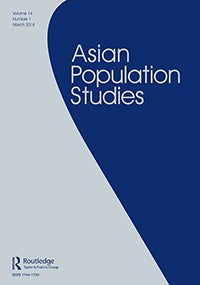Journals

Asian Population Studies (Vol. 3 No. 2)
| Publication Date | : | Jun / 2007 |
Diaspora studies have undergone a sea change in recent years. Skilled diasporas as a subset of diasporas have drawn the maximum attention as the developed countries have started to vie for talent from the global supply of human capital rather than relying mainly on the supply of knowledge workers in their home population. As a result, diasporas’ potential contributions to development in the developing countries of their origin have become important policy consideration and focus of research. This special issue of Asian Population Studies is addressed to an evaluation or assessment of such place for skilled diasporas in homeland development. The first selection is a short paper focused on the methodology of diaspora analysis, with examples from the Indian high-skill diaspora in the United States. The next three papers refer to the role of diaspora in contemporary Asian development*one is a comparative study of policy lessons China and India can draw from each other, another one looks into the potential that its medical diaspora has for contributing to the development of Bangladesh and a third one argues for diaspora networking as a development strategy with examples from India. The final paper, focused on internal migration from rural Pakistan and the absence of a substantial diaspora originating in rural Pakistan, substantiates this emerging perspective by providing a contra-view. The papers together thus cover substantial ground on the issue of South Asian diasporas and their role in development.
Beginning with the conceptualization of a framework for an underlying matrix of the large expatriate Indian migrant community abroad, which comprises a number of typologies of models and actors, the paper by Binod Khadria proposes a way of addressing a number of the binaries in the sub-matrixes, while still keeping the issues together under a holistic entity called the Indian Diaspora. It deconstructs the interface between the Indian diaspora and its international context*identifying each as a dependent variable under one construct and as independent variables under a different construct. The choice would depend on which perspective of policy is more dominant in time: of the origin home country of the diaspora or the destination host country. The reason a paradigm shift in the host societies and regions where Indians have settled has become important lies in the realization that, given certain assumptions, one type of diasporic actors can become the other. The paradigm shift in India*away from ‘brain drain’ being looked at as an outright loss, and therefore painful for development, towards ‘brain bank’ or ‘brain gain’, and therefore a gainful opportunity*could be understood as the outcome of such change only. What role the diaspora would play in making these transformations reality has been left as an open question. The paper suggests construction of alternative matrices of diaspora actors and models based on the chosen role.

